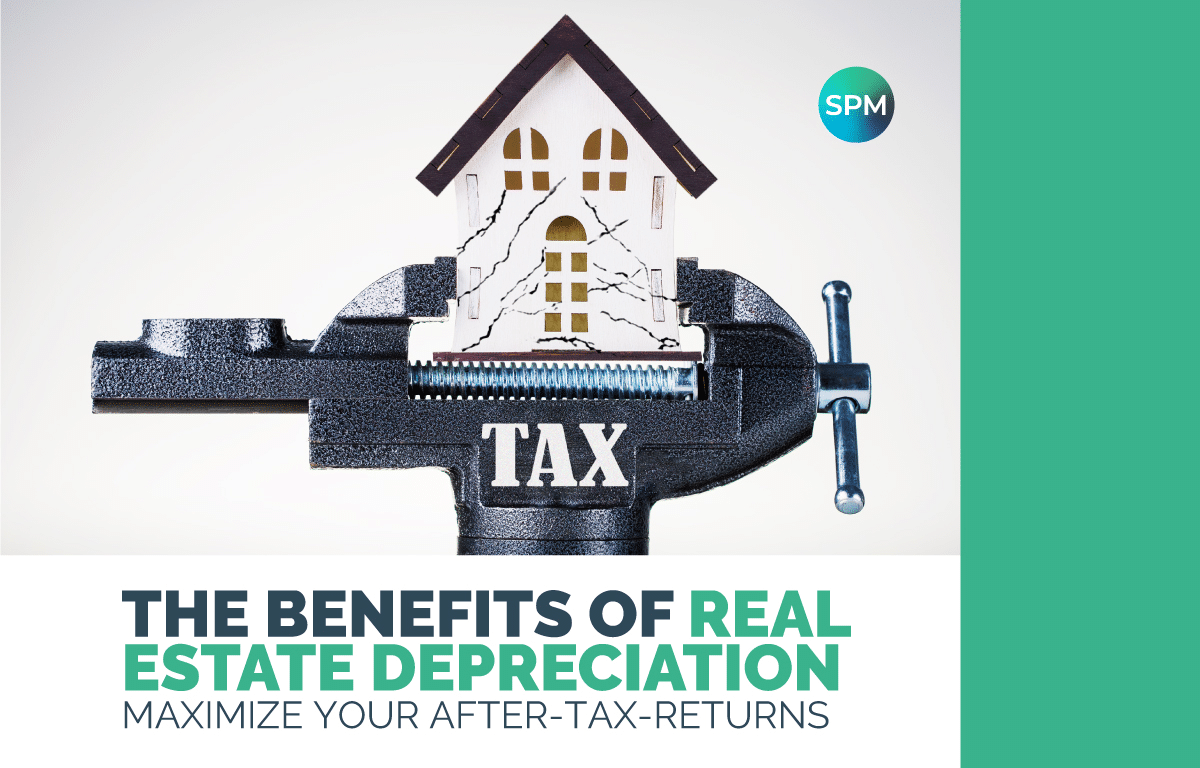Real Estate Depreciation
Most real estate investors are familiar with the concept of real estate depreciation – reducing taxable income by writing off the cost of a long-term asset over its estimated useful life.
Rental property depreciation is a primary element in tax planning for real estate investors, as it can create significant tax savings.
While all types of real estate assets can qualify for real estate depreciation, the importance of real estate depreciation for multifamily investors can be magnified due to the high number of cost segregation categories.
Although the tax benefits of real estate investing can be substantial, finding the right strategies and knowing when to utilize them is the biggest challenge. These opportunities necessitate extensive research because they are neither evident nor transparent.
However, the outcomes mostly make the work worthwhile. Minimizing – or even avoiding – some tax liabilities via rental property depreciation can assist you in developing sizable long-term wealth.
This article will explain the importance of real estate depreciation and how it can maximize your tax benefits.
What is Real Estate Depreciation?
Depreciation is a non-cash expense deducted from your net operating income to reduce your taxable income. Here’s a real estate depreciation example.
If your rental property generates $2,000,000 in net operating income and you have $800,000 in depreciation expense, your taxable income would be $1,200,000. You basically will pay no tax on $800,000 of net income.
Depreciation is an accounting procedure used to allocate the cost of improvements, based on establishing depreciation schedules determined by the estimated useful life of those improvements.
Depreciation expense is calculated by dividing the value of the improvement by its useful life as defined by the IRS.
For instance, if you purchase an income-producing property whose improvements are valued at $20,000,000 and the IRS deems their useful life of 27.5 years, your annual depreciation write-off would be $20,000,000 divided by 27.5 leading to an annual write-off of $727,273.
The depreciation expense can be deducted from your net operating income, which reduces your taxable income and thus your taxes.
According to the IRS, a rental property’s improvement value is depreciable if it satisfies all of the following criteria:
- You own the property.
- You use the property for your business or as an investment.
- The asset has a predetermined useful life, which means it will eventually wear out, deteriorate, be consumed, or lose its usefulness.
- It is anticipated that the property will exist for longer than a year.
If the asset satisfies all of the criteria mentioned above, it cannot be depreciated if you put it in use and then dispose of it, or stop using it for business purposes, in the same calendar year.
Land is not a depreciable asset because it never wears out. Additionally, since the costs associated with clearing, planting, and maintaining land are regarded as part of the cost of the land rather than the improvements, thus, you cannot depreciate those costs.
Exploring the Tax Benefits of Real Estate Depreciation
The tax benefits of real estate depreciation are two-fold:
1. It reduces your taxable income
The first benefit, reducing your taxable income, is straightforward. You are effectively reducing your taxable income by deducting your depreciation expense from your net operating income.
2. For real estate professionals it provides a tax benefit in the form of a write-off
For real estate professionals and their spouses’ depreciation expenses can be used to offset other income, such as W-2 wages.
Other Rental Property Depreciation Benefits?
Here are other ways to maximize the benefits of real estate depreciation for your income-producing real estate,
- Use depreciation deferral strategies to postpone paying taxes on your future rental income.
- Use depreciation to create a loss on your income tax return, which can be used to offset other income in the future by utilizing IRS loss carry forward rules.
Real Estate Depreciation: The Bottom Line
Real estate depreciation is a fantastic right that enables you to write off the value of real estate improvements against the net income generated by the property over the estimated life of the improvement, lowering your annual tax burden.
When running your income property business, you are always advised to engage with a skilled tax accountant because the tax regulations governing income properties are complex and change frequently.
This will increase your chances to get the best possible tax treatment and prevent any unpleasant tax-time surprises.
To learn more about real estate investment, partner with us. If you are looking for property management that will make investing simpler, consider Summerfield!
We employ tried and tested strategies to ensure our clients get proper service. You can learn more about our approach by scheduling a meeting with us!
Real Estate Depreciation: FAQs
Q: What is real estate depreciation?
A: Real estate depreciation enables you to minimize your taxable income by allowing you to deduct from your property’s net income a certain amount of the value of your improvements based on their useful life which reduces your tax liability.
Q: What is cost segregation?
A: The IRS allows you to segregate the improvements into a variety of categories which each have a different economic life versus just writing off the gross value of improvements over the standard 27.5 years. For example, the IRS allows you to determine the value of all appliances and depreciate them over 5 years.
Q: How do you maximize real estate depreciation?
A: Here are some tips for maximizing your real estate depreciation deduction, regardless of whether you rent it out or use it for your business.
Have an appraisal conducted that accurately separates the value of your land and improvements.
Have a cost segregation study that meets IRS standards completed for your improvements so you can accelerate write-off.










